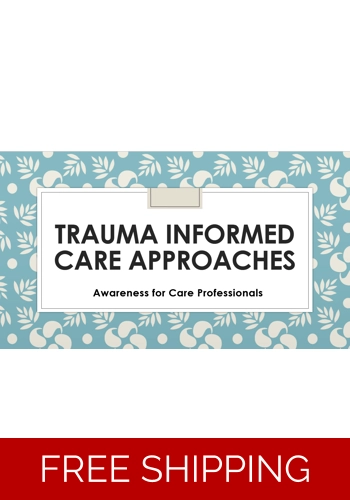Trauma Informed Care Approaches - All Care Settings
Trauma Informed Care Approaches. Suitable for any care setting.
Enough resources for single sessions, single aspects or a one day course with workshops.
All editable.
20 Files in total (Presentation (in sections) , Handouts x 9, Learning Activity documents x 6 (many with a selection of case studies) and End of Session Multiple Choice Assessments x 4).
Overall Aim : To equip professionals in the UK with the knowledge and skills necessary to implement trauma-informed practices in their respective settings, fostering a supportive and healing environment for individuals impacted by trauma
Learning Objectives:
- Understand the principles and significance of trauma-informed care within the context of UK healthcare and social services.
- Identify different types of trauma and their potential impacts on individuals across the lifespan, including children and adults accessing mental health services.
- Apply practical strategies for implementing trauma-informed practices, including creating safe environments, building trusting relationships and utilising trauma-specific interventions.
- Develop effective communication skills and self-care strategies to prevent burnout and enhance resilience when working with individuals who have experienced trauma.
Presentation (80 Slides)
Aims and Objectives
Introduction
Section - Introduction to Trauma-Informed Care
Definition
Prevalence in Healthcare Settings
Prevalence in Social Care Settings
Prevalence in Child Care Settings
Importance of Trauma-Informed Approaches
Section - Understanding Trauma
Introduction
Acute Trauma
Chronic Trauma
Complex Trauma
Impact of Trauma
Individual Impact
Interpersonal Impact
Community Impact
Resilience and Healing
Section - Principles of Trauma-Informed Care
Introduction
Physical Safety, Emotional Safety
Psychological Safety, Trauma-Sensitive Practices
Trustworthiness, Transparency
Honesty and Integrity, Consistency and Reliability
Respect and Empowerment, Accountability and Responsiveness
Peer Support
Shared Experience, Mutual Aid
Empowerment and Validation, Community Building
Partnership, Shared Decision-making
Respectful Communication, Cultural Sensitivity
Empowerment, Voice, Choice
Self-Determination, Informed Consent
Advocacy, Strengths-Based Approach
Section - Implementing Trauma-Informed Care
Introduction
Screening, Trauma Informed Approach
Comprehensive Assessment, Respect for Autonomy
Referral, Follow Up, End Comments
Implementing Trauma-Informed Care
Physical and Emotional Safety
Trauma-Informed Practices, Cultural Sensitivity
Collaborative Care
Building Trusting Relationships
Establishing Rapport, Consistency, Reliability
Active Listening, Respect for Autonomy
Trauma-Informed Approach, Cultural Sensitivity
Providing Trauma-Specific Interventions
Evidence Based Therapies, Psychoeducation
Mindfulness, Grounding Techniques, Safety Planning
Supportive Services, Medication Management
Holistic Approaches, End Comments
Section - Trauma-Informed Communication
Active Listening Skills
Attentive Presence, Empathetic Understanding
Reflective Listening, Non-Verbal Communication
Open-Ended Questions, Avoiding Interruptions
Validating Experiences
Acknowledging Emotions, Affirming Reality, Normalising Reactions
Empathetic Listening, Reflective Validation, Cultivating Trust
Avoiding Re-Traumatisation
Understanding Triggers, Using Sensitive Language
Respecting Boundaries, Providing Choice and Control
End Comments
Section - Self-Care for Professionals
Introduction
Symptom Awareness, Monitoring Personal Well-being
Seeking Support, Setting Boundaries
Mindfulness, Professional Development
Section - REAL-LIFE SCENARIOS
Case Study 1 - Scenario and Approach
Case Study 2 - Scenario and Approach
Case Study 3 - Scenario and Approach
Section - Summary of Key Points
References and Further Reading
Word Documents
Handouts x 9
Learning Activity documents x 6 (many with a selection of case studies)
End of Session Multiple Choice Assessments x 4)
Documents saved in Office format.
Your choice - Zip Folder or download from Microsoft 365 link (your choice).
HSC Training Link
Training Resources for Health and Social Care
Supplying training resources for the health and social care sector since 2004.
Resources purchased are emailed to you via Zip Folder attachment or via Microsoft 365 link (your choice).
All packs are written in a generic style and can easily be adapted to suit your own specific training delivery.
Secure payments via PayPal Merchant Commerce Platform.
You do not need a PayPal account to use this payment
gateway.
Debit and credit card payments accepted.



